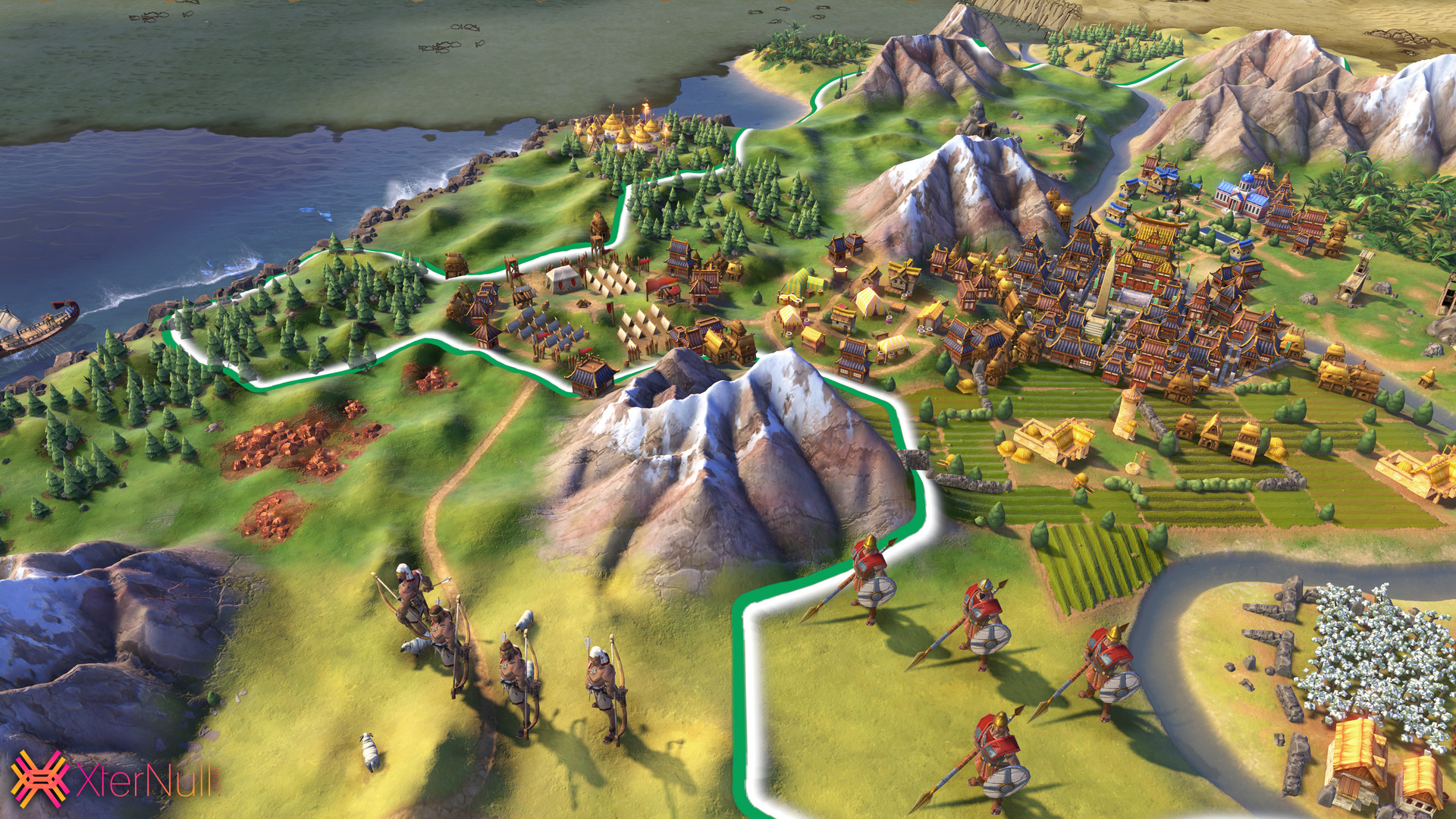

Landscapes are colorful, decorated with well-defined geography. Early on the game instills respect and a desire to win.Ĭivilization VI’s visual style received some negative attention when the game was initially announced, but it was largely undeserved. Victories, both large and small, invoke great emotion. This level of challenge may be off-putting for some, but is well worth enduring to experience the game’s fantastic sense of reward. Lower difficulties are highly recommended for new players as nothing is worse than finding out after a few hours that you have absolutely no shot at competing. The bi-polar diplomacy in addition to the complexity of the new game system does bring with it some serious challenges. You will also need to be very careful about how you move around the map and expand your empire, because even innocent unit scouting near a border or creation of a new city between your empire and another can cause hostility. For example, you might find that a nearby faction admires your commitment to science and culture one turn, but once you build a Wonder they are enraged. Small, seemingly inconsequential moves on your part can mean the difference between friendship and war.

The problem is that each has its own hidden agenda that is very difficult to decipher. leaders feel more like real players in that they aren't predictable. The presentation of information is much better than in prior games, and A.I.

Subsequent playthroughs benefit greatly from the balanced and much more interesting Culture, Science, and Religion victory types.ĭiplomacy is a mixed bag. Alternatively, you can race to land on Mars if you prefer Science, or take up arms and destroy your enemies if you are attracted to Domination. As with Civilization V: Gods & Kings, Culture victories are a valid way to approach the game, made more engaging by the new Culture Tree. On top of these new gameplay elements, Civilization VI provides several attractive victory conditions. Advancement feels dynamic as your empire will vary drastically from others that you compete with cookie cutter builds are simply not a thing anymore. This addition has had a very positive impact, most notably in the mid-game where Civilization V suffered from slow pacing. Every few turns you will not only need to pick and choose which Technologies you want to prioritize, but also Culture-oriented progression that affects military, religion, and more. This element of gameplay alone has had a huge impact on the turn-by-turn experience, ensuring that you are constantly having to make decisions and compromises.Īctive Research is backed by the introduction of a Culture Tree. Objective completion will boost the research of a given Technology or Culture unlock by half, significantly reducing the number of turns needed to progress. These function similarly to RPG quests in that they provide smaller objectives that are well worth your time. Once you've made your selections and begin a game, the strong similarities to Civilization V dissipate, revealing a surprisingly complete package.įiraxis Games' addition of Active Research has interweaved smaller, short-term goals into the experience. Leader choices include 19 options, each with a very distinct play style resulting from their perks, unique buildings and units. Everything can be fine-tuned from the map type to a selection of nine difficulties and victory condition toggles. Civilization VI continues true to the heritage of prior titles by providing you with a wealth of options for setting up a game.


 0 kommentar(er)
0 kommentar(er)
